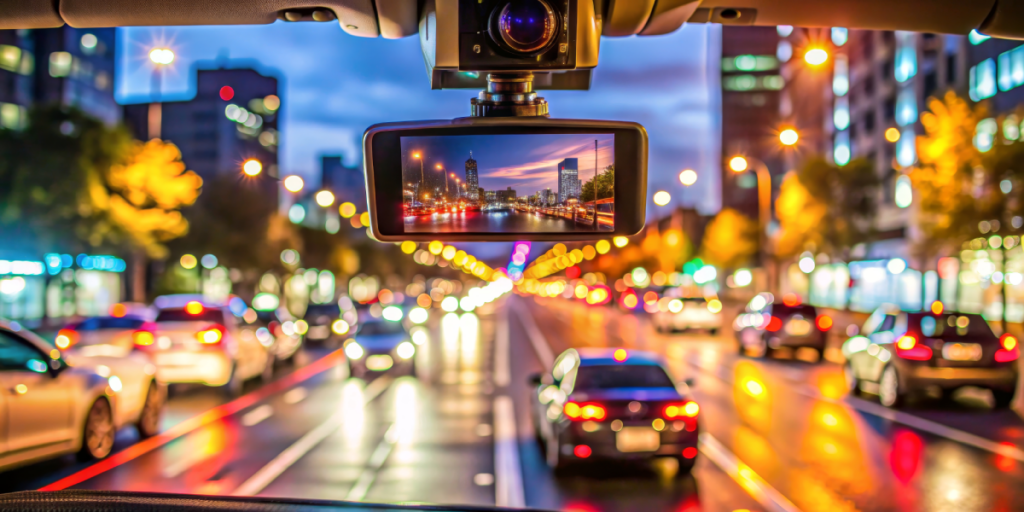Dashcams have surged in popularity among drivers due to their ability to capture real-time events on the road. These small devices, easily mounted on your car’s dashboard or windshield, continuously record footage that can be incredibly useful in various situations. From scenic drives to documenting road accidents, dashcams offer an added layer of security and peace of mind. Legal professionals, like those at The Raimondo Law Firm, frequently underscore the importance of dashcams, especially when it comes to car accident claims. By providing an objective account of events, dashcams ensure fairness and accuracy in accident investigations.
How Dashcams Aid in Car Accident Claims
Dashcams provide clear video evidence that can significantly impact the resolution of car accident claims. In the unfortunate event of an accident, having video footage offers an unbiased account of what happened. This footage can help determine who was at fault, proving invaluable for insurance companies and legal professionals. With a dashcam, moments leading up to, during, and after a collision are documented, making it easier to establish the facts.
Insurance companies benefit from this clear representation, as it can expedite the claims process and reduce disputes between parties. Legal professionals find dashcam footage essential in court, as it can support or refute claims made by either party. By providing an objective perspective, dashcams ensure a more accurate and fair assessment of accidents, making them a crucial tool in car accident claims.
Legal Considerations
Understanding the legal landscape surrounding dashcams is essential for drivers. Different states have varying regulations about where and how these devices can be installed, so it’s important to check local laws to avoid legal issues. For instance, some states have specific rules about windshield-mounted devices and require dashboard placement. ..
Another crucial factor is the admissibility of dashcam footage in court. Generally, such footage is considered admissible evidence, but its acceptance can hinge on its quality and whether it was obtained lawfully. High-definition, clear, and unaltered recordings are more likely to be accepted in legal proceedings.
Drivers should also be aware of privacy laws that can affect dashcam usage. Recording audio requires the consent of all parties involved, depending on state regulations. Legal experts, like those at The Raimondo Law Firm, can provide guidance on navigating these complexities, ensuring that dashcam footage is used effectively and lawfully in car accident claims. Consulting with professionals can offer peace of mind and help avoid legal pitfalls.
Challenges Faced with Dashcam Usage
Privacy concerns are a significant issue, as dashcams can inadvertently capture more than just the road ahead. They may record private property or individuals without consent, potentially violating privacy. Additionally, technical limitations and data storage can pose challenges for dashcam users. High-quality footage requires substantial storage space, and managing this data can be cumbersome. Users may need to regularly transfer or delete footage to ensure enough space for new recordings. Technical issues, such as poor video quality in low light or camera malfunctions, can also hinder the effectiveness of dashcams in providing reliable evidence.
Future Trends in Dashcam Technology
As technology advances, dashcams are expected to evolve and become even more integrated with other in-car technologies. Future dashcams may offer enhanced features such as improved night vision, higher resolution, and connectivity with other smart devices. This integration can provide a more seamless and efficient experience for drivers.
Voice command capabilities are also on the horizon, allowing users to control their dashcams without taking their hands off the wheel. Real-time alerts for nearby hazards or traffic conditions could be integrated, providing an extra layer of safety.
Artificial Intelligence (AI) is set to play a significant role in the next generation of dashcams. AI can analyze driving patterns and offer feedback to improve driving habits. It can also detect and alert drivers to potential collisions, lane departures, or other road hazards in real time. These advancements enhance driver safety and provide more comprehensive documentation for insurance claims and legal purposes.
Moreover, cloud storage options are becoming more prevalent, allowing users to upload footage to a secure online location automatically. This feature ensures that video evidence is preserved even if the dashcam is damaged in an accident. Enhanced GPS functionality can provide precise location data, adding another layer of detail to the recorded footage.
Manufacturers are also focusing on making dashcams more user-friendly. Easy-to-install models and intuitive interfaces are becoming standard, making it more straightforward for drivers to use these technologies. As competition in the market grows, we can expect to see more innovative features and competitive pricing, making high-quality dashcams accessible to a broader audience.
With continuous advancements, dashcams are set to become indispensable tools for modern drivers, offering benefits that extend far beyond recording the road ahead.
Conclusion
Dashcams have revolutionized the way car accidents are investigated and claims are processed. Their ability to capture real-time events provides an unbiased account that clarifies faults, expedites the insurance claims process, and supports legal arguments. The presence of a dashcam in your vehicle can significantly impact the outcome of an accident claim, offering clear evidence that benefits all parties involved.
While dashcams have challenges, such as privacy concerns and the need for adequate data storage, their advantages often outweigh these drawbacks. As technology evolves, we can expect even more advanced features, including better night vision, AI-driven analytics, and seamless integration with other smart devices, making them increasingly indispensable for drivers.
Understanding the legal considerations and ensuring proper usage is essential. With guidance from legal professionals like The Raimondo Law Firm, drivers can navigate the complexities of dashcam laws and maximize the benefits of these devices.
In the ever-changing landscape of road safety and accident claims, dashcams are critical tools that offer enhanced security, peace of mind, and fairness. Whether you’re a daily commuter or an occasional driver, investing in a quality dashcam can provide substantial benefits, making your driving experience safer and more transparent.
To learn more about your legal rights and options, contact The Raimondo Law Firm today at (631) 460-5472 or fill out our online form.





